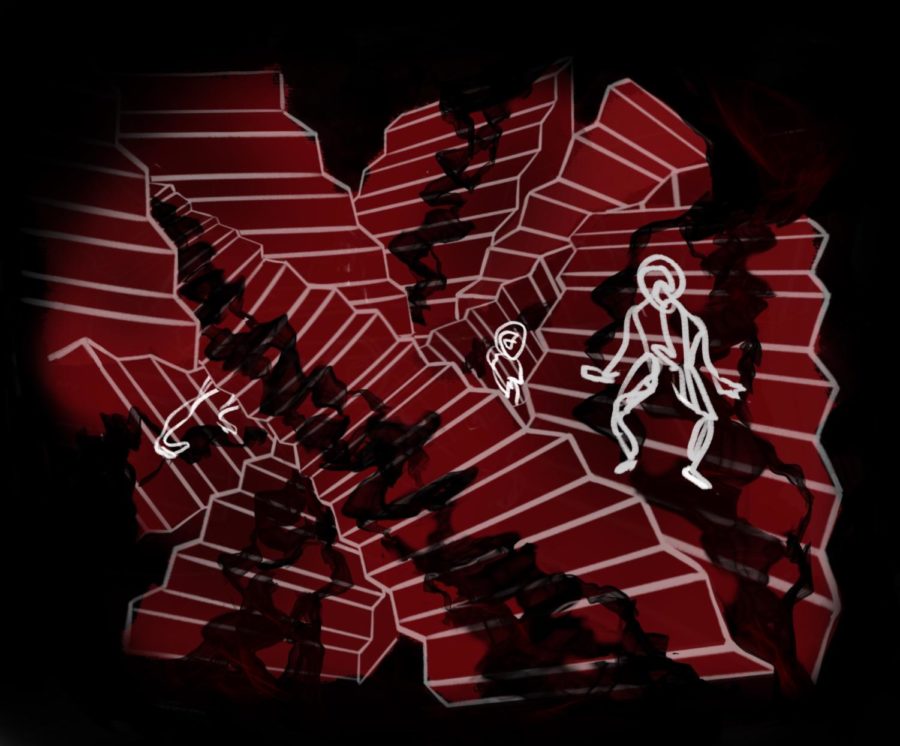Anxiety has permeated every aspect of my almost 20 years on this campus, first as a grad student and now as a librarian. To be fair, I have generalized anxiety disorder, so anxiety would be a part of my life regardless of where I worked. But my experience is that the culture of this campus cultivates anxiety, which makes living with an anxiety disorder a daily slog. Here are my observations of why that is:
Hierarchy, hierarchy, hierarchy.
The University feels like a feudal kingdom—or a collection of fiefdoms within a feudal kingdom, each one arranged in hierarchical relation to the others and each with its own hierarchical system. Much of our time is spent trying to move up or function within the hierarchy while avoiding the wrath of the powerful. Who has the power to fix a problem? Am I allowed to speak to them directly, or do I need to cc a supervisor? Do I need to cc a supervisor anyway in order to make sure my request is taken seriously? It’s exhausting. And it makes it really hard to form and foster human connections or to know someone’s true intentions. My anxiety disorder makes me project all my insecurities onto others. If you’re already prone to assuming everyone hates you and that you don’t belong, the dehumanizing effects of a strict hierarchy will amplify and give authority to those feelings.
A lack of communication and transparency.
The primary currency of our fiefdoms is information; your place in the hierarchy is measured by your access to information. Information is hoarded by those at the top and doled out in small chunks through the labyrinthine committee structure, itself a hierarchy. Or, it’s transmitted behind closed doors by a supervisor to a favored staff member, or in Friday afternoon mass emails to the entire community announcing sweeping changes to things no one thought needed fixing. But even if you are one of the favored or on one of the “important” committees, you’re likely not involved in any impactful decision-making. You’re there as a sounding board for whoever convenes the group and who will be making the decisions regardless of your input. It’s infuriating. But it also makes it really hard to just do your job. My anxiety disorder makes me “catastrophize.” I envision everything that could go wrong. One way to manage those thoughts (which can get really scary) is to strategize how you would react if something went wrong. But, when crucial information is withheld on a daily basis and there is no clear method for accessing that information, strategizing just creates more anxiety.
Policies: unenforced, over-enforced, or nonexistent.
Do you know your department’s policy for family leave? For working from home? For dress code? For purchasing an ergonomic chair? For requesting comp time? For using email? Would you know where to find these policies if you wanted to read them? I don’t. When I ask my colleagues, I receive wildly different answers. Few can point to written policies, and even when they can, there’s no guarantee they are uniformly followed. The result? I literally cannot follow the rules because I don’t know them, or because they don’t exist, or because I’ve been told the wrong thing, or because they’ve changed and no one told me. Clarity and simplicity help me manage the nonstop chaos of second-guessing that my anxiety disorder evokes. In this environment of uncertainty, I struggle with the constant feeling that I may be breaking the rules and won’t be able to defend myself against repercussions.
These aspects of our culture trigger anxiety while creating an environment that makes it really hard to manage anxiety. They also represent deep, structural problems that feel insurmountable. Even the simplest of issues can lead to a morass that leaves me feeling like the entire system is designed to unwind all my best efforts to not have a panic attack in my office. Even worse are the days when my experience of situational anxiety is denied by folks who, because they do not have the same experience, can’t or won’t acknowledge that a given situation could cause anxiety.
I have a lot of days when I feel like this campus is a lost cause and nothing will ever change; it will only continue to be terrible in different ways. That said, I know that I’m not alone, and that many of us are struggling against these forces. But we need help. We need to be part of the decision-making process. We need to be trusted. We need to be able to trust our leadership. We need a genuine commitment to building a culture of empathy and support in which we can all thrive.
Anne Knafl is Bibliographer for Religion, Philosophy, & Jewish Studies in the Regenstein Library.








